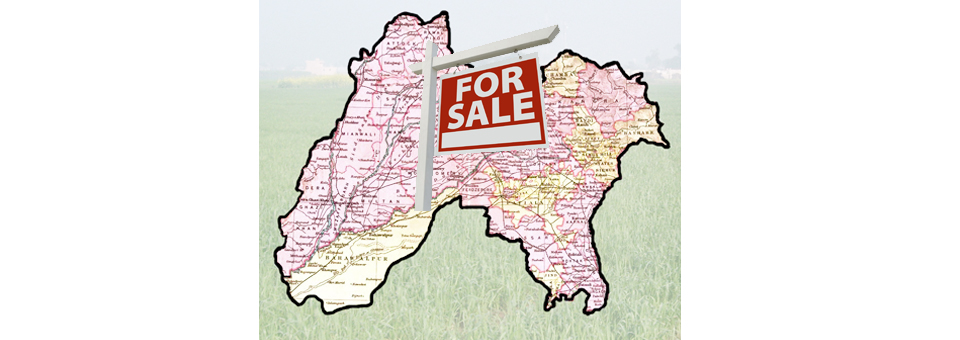The issue of illegal immigration has come to the fore once again this weekend after the discovery of people being trafficked into the UK at a docks on the south-east coast of England. Broadcast media and the printed press have provided continuous coverage as well as feature pieces about migration into the UK, human-trafficking and of course illegal immigration. Immigrants and 2nd or 3rd generation immigrants can feel quite uneasy at times like this, unsure of where they should stand and without doubt uncomfortable at some of the language that surrounds ‘foreigners coming to the UK’ when in reality our own experience of travelling to western shores tells the story that needs to be understood if we are to tackle global movement of mass populations. As the child of immigrants myself, I feel compelled to do just that.
At approximately 6:30am on Saturday morning, 35 people were found screaming and hollering inside a shipping container at the Essex port of Tilbury. One adult male in his forties was found to be dead, whilst the others including 13 children (one reported to be only a year old) were suffering from dehydration and hypothermia. They were immediately taken to local hospitals and treated before interpreters were brought in to interview them this morning. The shipping container was loaded at Zeebrugge in Belgium on Friday night leaving there at 10pm on a P&O owned commercial vessel called the Norstream. It has since been revealed that the group originated from Afghanistan and belonged to the dwindling Sikh community that still resides there, although it is not yet known how long they were in the shipping container for. When the news broke at the weekend there were rumours and unconfirmed reports that the stowaways were Punjabi, a suggestion probably gleaned from their visual appearance as Sikhs.
Since the turn of the century, tragic cases such as this have made headlines when the migrants were from a range of countries – China, Sudan, Iraq etc. What most of the countries have in common is that they are not stable nation states, often in the grip of civil war or dictatorship. This point is generally lost in the conversation about illegal immigration, but is central to our understanding of why people take such enormous risks to reach Europe and more commonly the UK. The painted picture of 3rd World families looking for an easy ride on the welfare system doesn’t take into account the threat of imminent death that they might have been facing or the restriction of their human rights; putting yourself in that position, it becomes easier to see why one would risk everything to leave that World behind. Sometimes though, it’s not as clear what threat an illegal immigrant might have been facing that would lead to them stowing away on shipping containers for days at a time; those travelling from the Punjab are a case in point. Many in the west (including 2nd and 3rd generation Punjabis) think of India as a rising giant in the global sphere, perhaps a sometimes troubled country that is at least trying to progress. Whilst that might be true for some regions and applicable to a small section of the population, it is not true of the Punjab and in particular for Sikhs who continue to leave in their droves. Why? Simply put there is little access to opportunities, rife corruption and a vision of a dangerous dystopia that some might argue is already in place.
When my grandfather travelled to the UK on a legitimate work visa in the early 1960s he did so with the belief that both his skills and his work ethics would find a good home. He was one of the lucky ones who risked everything in the post World War era and was at least able to walk into a customs office upon arrival, rather than enter under cloak and dagger. A little over a decade had passed since the creation of India and Pakistan as nation states and despite graduating from University with a Bachelor of Arts degree, he like so many others suffered in an India that discriminated against him on the basis of his language and religion. Having found no work that made use of his education, and after seeing umpteen uneducated individuals appointed to administrative and clerical posts ahead of him purely because of their background and faith, he took advantage of the opportunities that England promised for hard working citizens of the commonwealth. Sadly his education and advanced skills made no difference here either and having spent some twelve years working as a manual labourer he died of a heart attack in his mid-forties. By that time he had brought his wife and two sons to the UK who settled and raised families. It is pointless to guess what route my life would have taken had my grandfather not migrated here, but knowing the present circumstances of the few remaining relatives I have in Punjab and my own experience of recent South Asian history, I can guess it would not have been positive. Would I too be looking to leave at any cost?
The question many people ask about illegal immigration is ‘why the UK?’ When countries like India and Pakistan were brought into being, previous nation states like the Punjab were split in two. The British establishment made arbitrary and politically motivated decisions about who they would hand over the reigns of power to, not just in South Asia but across the whole empire and many of the citizens of those countries who lost out as a result then looked to Britain for support. It’s often proposed that these happenings are now decades old and that there has been plenty of time for countries in Africa, South Asia and South East Asia to get their act together. But this disregards the influence that the British Government, like the United States and its agencies continues to assert in these territories. The proof earlier this year that the British Government of the time had played a collaborative role in the invasion of the Sikh Darbar Sahib at Amritsar in 1984 is a more obvious example of this, but no less significant than this summer’s £250m deal for Britain to provide India with arms at a time when the Hindu right is rising under a Narendra Modi-led BJP.
The UK media has led with the fact that the migrants are victims of human traffickers – reading just a few comments on news websites quickly disintegrates the idea that this is a viewpoint held by the common man, many of whom see illegal immigrants as criminals who only want to settle in this country to make use of the welfare system and other benefits. Many of those same commenters might read the previous paragraphs and see British foreign policy as an excuse for migrants to hide behind, but the truth is that we as western citizens do not ask difficult questions of our Government and the politicians that they are dealing with around the World. If we want to resolve the problem of illegal immigration, we have to take an interest in the countries that those people are coming from. Like us they are people too, people who have dreams and desires to live freely, without a restriction on their rights and opportunities. Whilst the citizens of any country have a duty to create the society that they want to live in and bring about change themselves, we also have a duty not to interfere with their countries. Those who were found in the shipping container at Tilbury this weekend came from Afghanistan – a country we in the West have interfered with now for thirteen years directly, and for well over a century in reality. Next time they may be immigrants from Syria or Iraq, or maybe the Punjab; we need to ask not why they come, but why it is they choose to leave and what role we’ve played in creating that environment.






